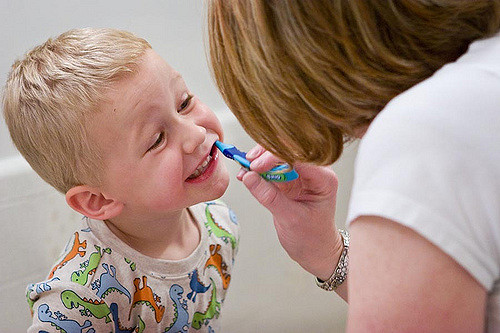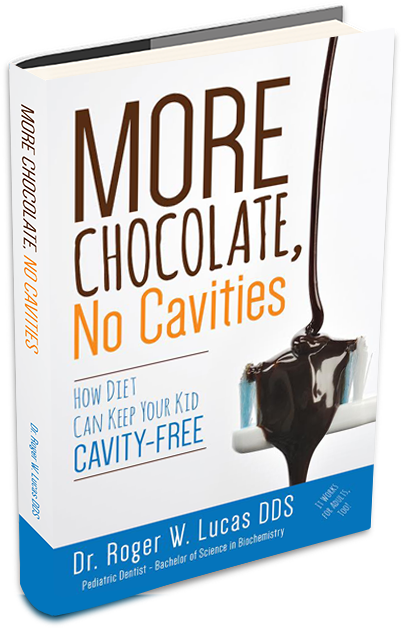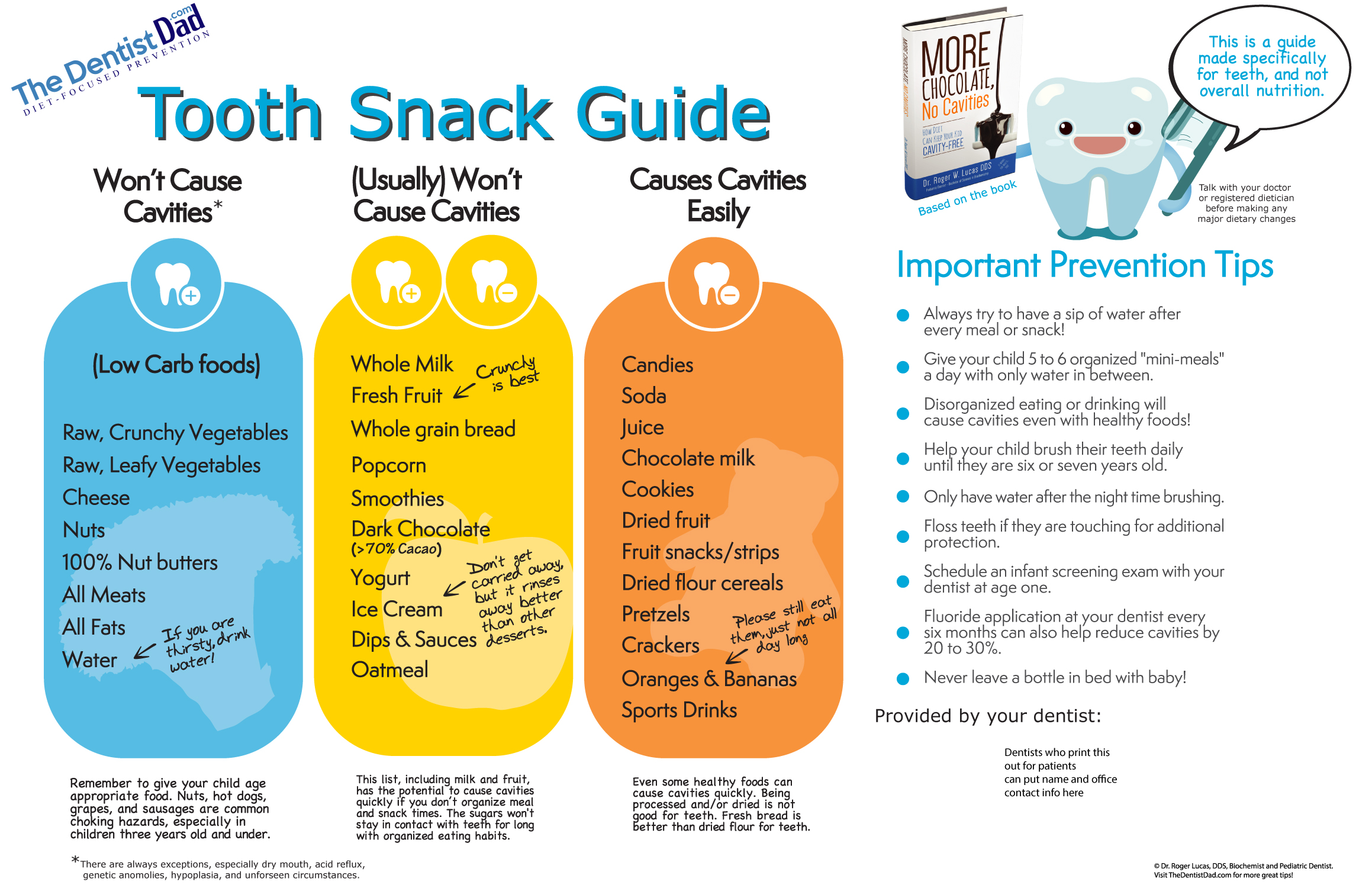 Every time we go to the pediatric dentist, I worry he will find a cavity in my son’s mouth. My son was riddled with early childhood caries as a toddler, and he has had one cavity since. The patch within his heart makes dental work particularly worrisome, and I have read of other congenital heart parents restricting their children’s sugar intake to prevent cavities. Thankfully, sugar is not to blame for children’s cavities.
Every time we go to the pediatric dentist, I worry he will find a cavity in my son’s mouth. My son was riddled with early childhood caries as a toddler, and he has had one cavity since. The patch within his heart makes dental work particularly worrisome, and I have read of other congenital heart parents restricting their children’s sugar intake to prevent cavities. Thankfully, sugar is not to blame for children’s cavities.
Image: Some rights reserved Brian on Flickr
Sugar causes cavities…right? WRONG! According to pediatric dentist Dr. Roger W. Lucas, DDS, parents should be more concerned about carbohydrates than sugar for dental health. In his book More Chocolate, No Cavities: How Diet Can Keep Your Kid Cavity-Free, Dr. Lucas clearly explains the link between carbohydrates that stick to the teeth and cavities.
 Dr. Lucas identifies 3 common myths about cavities:
Dr. Lucas identifies 3 common myths about cavities:
- Children lose all of the baby teeth at age 6.
- Cavities are caused by genetics or “weak enamel.”
- If your child never has candy, soda, or juice, and get their teeth brushed for 4 minutes a day, they won’t get any cavities.((http://www.thedentistdad.com/three-myths/))
Why are some kids and adults more prone to cavities than others? Genetics and weak enamel only account for 1 to 3 percent of tooth decay.
The statistics are quite staggering that 60% of children under the age of 5 have cavities. Toothbrushing, flossing, and fluoride cannot work alone to prevent decay. According to Dr. Lucas, 95-100% of cavities are preventable with dietary changes!
What causes cavities?
Bacteria causes tooth decay. It’s a disease process called caries. Dr. Lucas in More Chocolate, No Cavities explains:
- Bacteria live in the mouth and grow on teeth
- Mouth bacteria break down simple carbohydrates into lactic acid as part of digestion
- If enough lactic acid sits on a tooth for long enough, it dissolves part of the tooth and forms a hole in the tooth.
Bottom line: Sugar does not cause tooth decay. Carbohydrates do.
When has your dentist ever talked to you about diet?
Dr. Lucas writes:
In dental school they teach that if you eat foods that break down into sugars, mouth bacteria produce lactic acid (which, as a reminder, starts the cavity-formation process). Carbohydrates always convert to sugars and are in everyone’s diet; therefore, cavities are impossible to prevent by diet modifications according to the old dogma.
This is not true because not all foods are equal. Certain foods, such as those comprised of protein or fat, or fibrous vegetables such as broccoli, don’t have a carbohydrate concentration high enough to produce lactic acid. Bacteria produce lactic acid only if they have high concentrations of simple carbohydrates, so foods with low concentrations won’t produce cavities. Therefore, if you ate only chicken and raw broccoli, you would never even have to brush, and cavities would never occur.
Prevent Kid’s Cavities
What are the first foods you fed your infant when their teeth first emerged? If you followed parenting advice, it was rice cereal, teething biscuits, and Cheerios type cereals. What do these foods have in common? Carbohydrates!
Instead of the guilt the pediatric dentists at UCSF made me feel over breastfeeding my son at night, I wish they would have given me this information. Of course, I wasn’t giving my infant and toddler sugar, but I was feeding him tons of carbs unknowlingly causing his tooth decay. It wasn’t his father’s soft teeth. It wasn’t the breastmilk. It was the carbs.
Dr. Lucas offers practical advice to help families prevent future tooth decay. He advises we limit grazing on carbs such as crackers (what parent hasn’t used crackers to get through a long car or plane ride?).
Restricting processed flours and simple carbs is the “secret to achieving zero cavities”. Drinking fruit juice in one sitting rather than sipping on the sippy cup over time is better.
Dr. Lucas is not advising kids need to be on low carb diets to prevent cavities. It is the frequency that is a concern. “It’s not the amount consumed, but the frequency with which simple carbs make contact with the teeth.”
Choose snacks wisely!
Limiting carbohydrate intake to breakfast and dinner, both meals usually followed by tooth brushing, will help prevent tooth decay. Limiting carbs altogether is recommended by many nutritionists and doctors because of the health benefits.
Until reading Dr. Lucas, I had never made the connection to tooth decay. It all makes sense. Here are some dietary tips from Dr. Lucas to help prevent cavities:
- Drink water instead of juice
- Set eating times instead of grazing
- Ice cream and chocolate are better for tooth decay prevention than crackers, pretzels, and raisins
My favorite advice from Dr. Lucas is to eat dark chocolate!
Counterintuitively, your teeth would be better off if you had a small piece of 70 percent dark chocolate instead of a pretzel, a cracker, or even dried fruit. (I can’t say the same for milk chocolate—sorry.) Dark chocolate has a higher fat content and therefore a lower carbohydrate concentration relative to crackers. It is similar to peanut butter that has some added sugar. Cavity-causing bacteria won’t selectively only break down the sugars in chocolate; it must process the fat, too. Since it has to “wade through” all of the fat molecules, it will process the sugar a little more slowly. My favorite is 70 percent dark chocolate. Dark chocolate in particular has more fat than it has sugar. In other words, fat is the majority of the mass, while sugar is a minority. The higher the cacao concentration the better, because this increases the fat content and lowers the sugar content. Dark chocolate also happens to contain some chemicals that may strengthen your enamel. Toothpaste manufacturer Theodent extracted a chemical from dark chocolate and used it to make toothpaste that has been shown to strengthen enamel.
The best tooth decay treatment is prevention. Dr. Lucas’ advice for diet-based prevention not only will benefit your teeth, it will also benefit your overall health. I have learned a lot from reading this book, including debunking the popular myth that sugar causes cavities. I am more aware of my son’s snacking habits and encourage a midday brushing if his snack includes carbs.
Tooth decay in children is on the rise. Brushing and flossing are not enough. Therefore, I hope more dentists like Dr. Lucas will have discussions about diet with their patients.

Leave a Reply